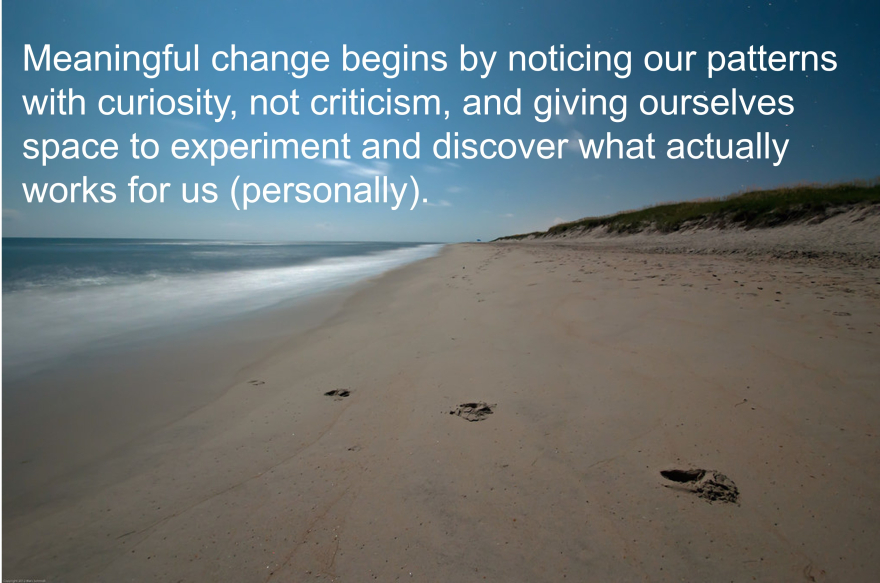|
After February’s newsletter, many of you shared thoughtful reflections and questions about focus and attention in the digital age. I’d like to continue that conversation by offering some additional insights that may help you protect your mental energy and increase your productivity.
You may be surprised to learn that simply having your smartphone nearby can reduce your cognitive performance. This is true even if the phone is turned off or out of sight. Your brain still registers its presence, which quietly pulls mental resources away from the task at hand.

A 2023 study found that the mere availability of a smartphone can lower working memory capacity and fluid intelligence. Researchers Ward et al. concluded that “smartphone availability depletes cognitive resources, and that the consumption of cognitive resources is high even when subjects manage to continue focusing, for example, when they are not looking at their smartphones.”
Here's why:
The "Brain Drain" Effect
Studies show that simply having your phone nearby, whether it's on your desk, in your pocket, or within reach, can interfere with how your brain functions. Even when you're not actively using it, your brain continues to register its presence. This background processing takes up mental resources that would otherwise support focus, memory, and problem-solving. Over time, this quiet drain can make it harder to concentrate and follow through on tasks effectively.

The Research Behind It
-
Cognitive Performance
A 2017 study by Kristen Duke, Adrian Ward, Ayelet Gneezy, and Maarten Bos found that participants who completed tasks with their phones in another room performed significantly better than those who kept their phones on their desks or in their pockets. The farther your phone is from you, the better your cognitive performance tends to be.
-
Unconscious Distractions
Even when you are not actively thinking about your phone, your brain is still tracking its presence. This background processing can quietly reduce your ability to focus, making it harder to stay engaged with the task in front of you.
-
Proximity Matters
The closer your phone is, the more it interferes with attention and memory. Whether it is in your pocket or sitting nearby on a table, its presence can pull focus even when it is silent.
-
The Attachment Factor
Research published in the Journal of the Association for Consumer Research shows that emotional attachment to our phones increases this effect. The more connected we feel to our devices, the more they tend to drain our mental energy, even when we are not using them.
So, what can you do to combat this and improve your focus and cognitive performance?
Strategies for Improved Focus:
1. Increase Distance Between You and Your Phone
If you are working on something that requires deep focus, try putting your phone in another room. The farther away it is, the less mental energy your brain uses to track it.
2. Turn off Non-Essential Notifications
If you need your phone nearby, silence it and turn off non-essential notifications. Most phones also have built-in focus or do-not-disturb settings, which can help minimize distractions. Take advantage of these settings to reduce distractions while working or studying. You can also use productivity apps like Forest, which helps you stay off your phone by rewarding you (using a gamified tree growing system) for uninterrupted focus.
3. Designate Phone-Free Times and Spaces
Set aside regular time blocks where your phone is out of sight and your attention is fully on the task at hand. It also helps to create a dedicated workspace that is free of digital interruptions. A physical boundary, like a desk or home office, can reinforce your focus and help separate work from rest.
4. Be Intentional With Phone Use
Practice mindfulness when using your phone. Be intentional about checking notifications and set specific times to look at social media or answer texts. This way, you're actively controlling your phone usage instead of letting it control you.
5. Keep Your Mind Anchored With Tangible Tools
Having a physical to-do list, notebook, watch, or journal can help you stay on track and reduce the temptation to check your phone. Writing things down by hand supports memory, reduces mental clutter, and makes your priorities more visible.
6. Practice Digital Detoxes
In addition to putting your phone away during work sessions, consider taking regular digital detoxes where you disconnect from screens and focus solely on non-digital activities.
7. Build in Tech-Free Breaks
It’s important to give your brain time to recharge throughout the day. Use techniques like the Pomodoro Method, which involves working in focused intervals (e.g., 25 minutes of work followed by a 5-minute break). During these breaks, avoid reaching for your phone. Instead, do something physical like stretching or taking a walk to help reset your attention.
Note: A digital detox is an extended, intentional break from most or all digital devices. It is designed to reset your relationship with technology. Tech-free breaks are short, regular pauses from screens that help you maintain focus, energy, and mental clarity throughout the day.
8. Reevaluate Your Phone’s Role
Take time to reflect on the role your phone plays in your daily life. Is it serving as a necessary tool, or is it becoming more of a distraction? Identifying the specific uses that are most important and trimming away unnecessary apps or notifications can lead to a more productive and intentional relationship with your device. Even a few hours of screen-free time can restore your mental bandwidth.
You’ve heard me say this before: meaningful change often begins by noticing our patterns with curiosity, not criticism, and giving ourselves space to experiment and discover what actually works for us (personally). Rather than jumping straight to advice or quick fixes, we can slow down and make room for the how, when, and why. Not the judgmental why, but the one rooted in compassion and clarity. That’s where insight happens. It’s where people begin to see how something as simple as a phone’s presence can shape their attention, what makes it harder to disconnect, and how to choose boundaries that feel both doable and respectful of how their brain works.

Consider making small changes this week, where you place your phone, when you check it, and see what you learn. Treat it as an experiment, to help you gather information, not a pass or fail test.
With gratitude,
Ana Isabel Sánchez
  
|